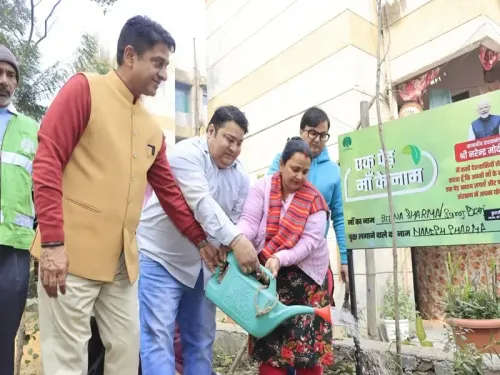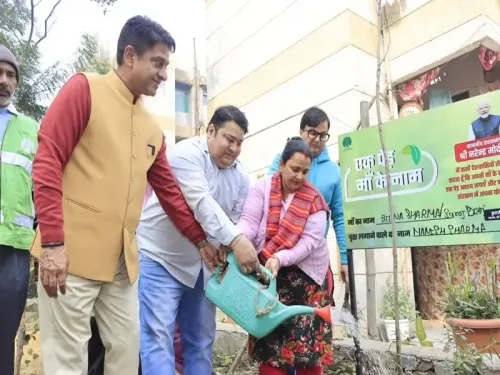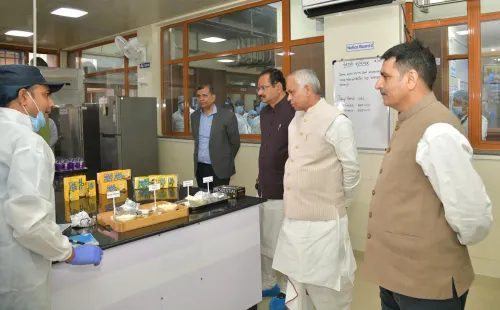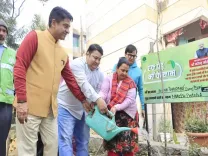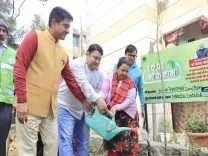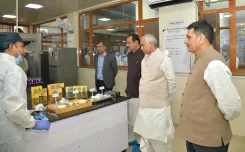Deportation Procedures Remain Unchanged Since 2009: EAM Jaishankar
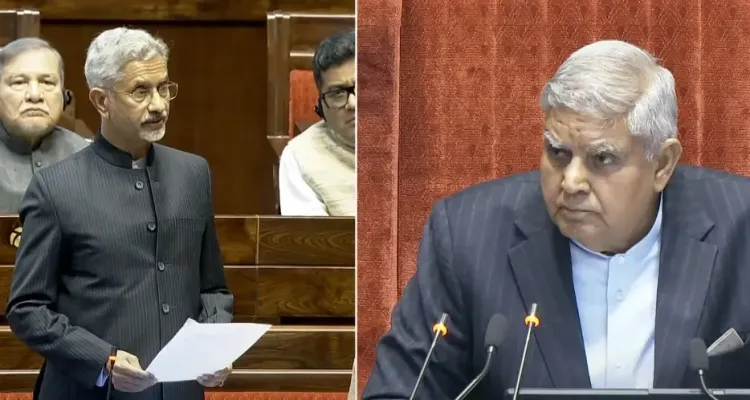
Synopsis
Key Takeaways
- No change in US deportation procedures since 2009.
- Countries must repatriate their nationals living illegally abroad.
- Focus on cracking down on the illegal immigration industry.
- Ongoing discussions with the US government for humane treatment of deportees.
- Details of deportations from the US shared since 2009.
New Delhi, Feb 6 (NationPress) External Affairs Minister S. Jaishankar remarked in the Rajya Sabha on Thursday that there has been no alteration from previous procedures regarding the deportation of illegal immigrants by the United States, asserting that this process is not a new initiative.
"It is the responsibility of all nations to accept their nationals if they are discovered living illegally abroad. This naturally requires clear verification of their nationality. This principle is not unique to any particular country, nor is it solely practiced by India. It is a widely recognized principle in international relations. Members should note that the deportation procedure is longstanding and has been in place for numerous years," stated Jaishankar as he addressed Parliament about the deportation of Indians from the US.
This statement emerged after the Congress party introduced adjournment motions in the Lok Sabha, calling for an immediate discussion on the deportation of over 100 illegal Indian immigrants by the US and requesting the Centre to elucidate its position and outline diplomatic initiatives aimed at ensuring the dignified treatment of those deported.
He stressed that the emphasis should instead be on a vigorous crackdown against the illegal immigration industry.
Jaishankar noted, "People-to-people exchanges form the foundation of our strengthening relations with the United States. More than in any other relationship, mobility and migration have significantly contributed to enhancing its quality."
He added that while legal movement is welcomed, illegal migration is discouraged due to its links with various criminal activities.
He highlighted that it is a global duty for countries to repatriate their nationals found living illegally overseas, clarifying that this practice relies on the verification of nationality and is not confined to any specific country.
To illustrate the ongoing nature of the deportation process, Jaishankar presented figures detailing deportations from the US since February 2009: In 2009, the number of deportees was 734; in 2010, it was 799; in 2011, it dropped to 597; in 2012, there were 530; in 2013, 515; in 2014, 591; and in 2015, 708.
Continuing with the statistics, he stated, "In 2016, the number reached 1303; in 2017, it was 1024; in 2018, 1180; in 2019, 2042; in 2020, 1889; in 2021, 805; in 2022, 862; in 2023, the number was 617; in 2024, it was 1368; and for 2025, it is projected at 104."
Jaishankar indicated that the deportations are executed under the Standard Operating Procedure (SOP) effective since 2012, which allows for the use of restraints.
"The deportation by the US is organized and carried out by the Immigration and Customs Enforcement (ICE) authority. The SOP for deportation by aircraft used by ICE, effective from 2012, permits the use of restraints. I reiterate, this is effective from 2012 and provides for the use of restraints. However, we have been informed by ICE that women and children are not restrained," he explained.
The minister further clarified that the needs of deportees, including food, essentials, and medical emergencies during transit, are addressed, and that temporary unrestraining is granted during toilet breaks, applicable to both chartered civilian and military aircraft.
"During toilet breaks, deportees are temporarily unrestrained if necessary. This applies to both chartered civilian aircraft and military aircraft. There has been no change. I repeat, no change from the previous procedure for the flight undertaken by the US on February 5, 2025," Jaishankar emphasized.
He also highlighted ongoing discussions with the US government to ensure the humane treatment of deportees during transit.
"We are in dialogue with the US government to ensure that returning deportees are not mistreated in any way during the flight. Simultaneously, the House should recognize that our focus must be on a robust crackdown on the illegal migration industry while making efforts to facilitate visas for legitimate travelers. Based on information from returning deportees concerning agents and others involved, law enforcement agencies will undertake necessary preventive and exemplary actions," he stated.
These comments followed the arrival at Sri Guru Ram Dass Jee International Airport in Punjab of a US military C-17 aircraft carrying the first group of 104 illegal Indian immigrants, with the largest numbers arriving from Haryana and Gujarat (33 each).
Among the deportees, 30 were from Punjab, three each were from Uttar Pradesh and Maharashtra, and two were from Chandigarh. The group included 25 women and 12 minors, with the youngest being just four years old, and 48 individuals were under the age of 25.
The flight, which departed from Texas on Tuesday, also transported 11 crew members and 45 US officials overseeing the deportation procedure, coinciding with Prime Minister Narendra Modi's upcoming visit to Washington next week.



